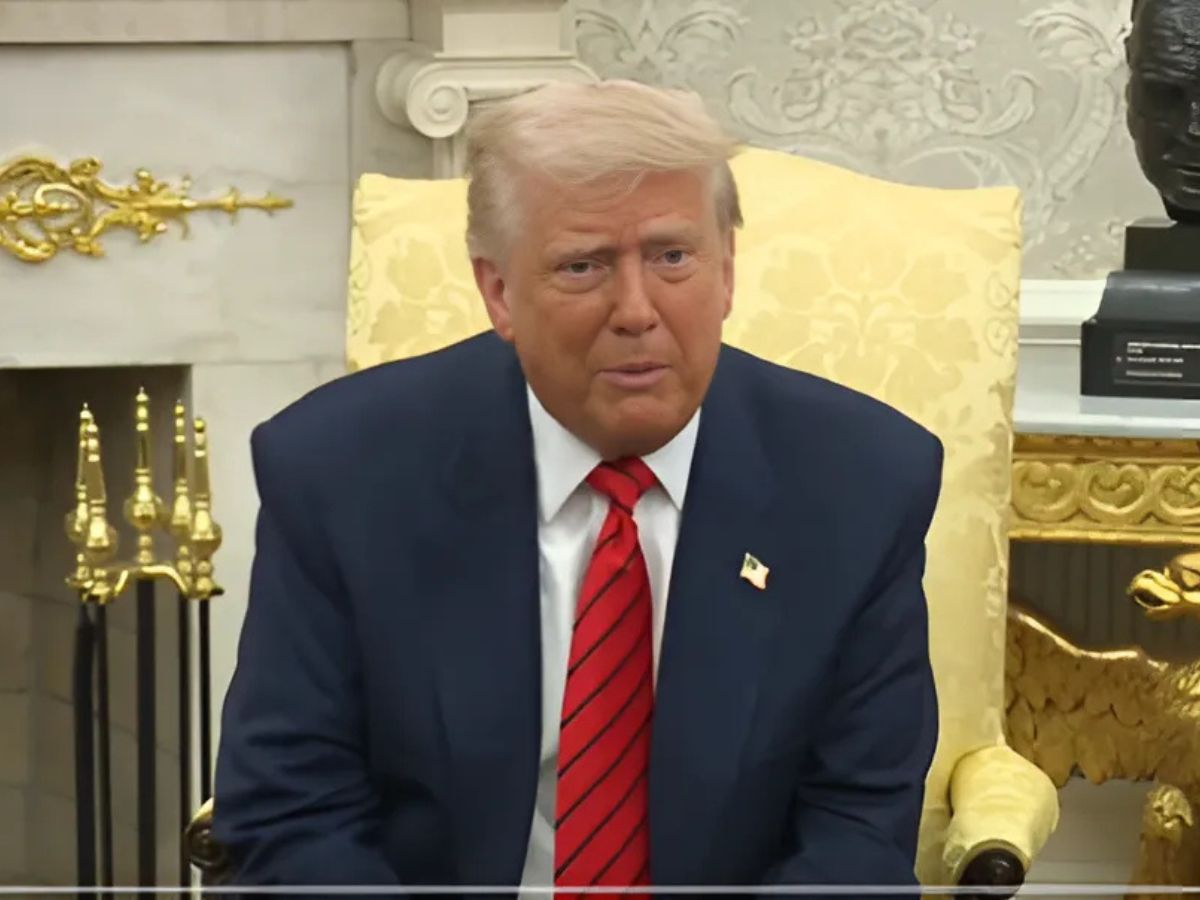US President Donald Trump on July 8, announced a high tariff increase for copper and pharmaceutical imports including a 50 per cent tariff on copper and potential tariffs on pharmaceutical products that may reach up to 200 per cent within the next year.
Donald Trump is announcing sector specific tariffs as a part of a wider strategy focusing on critical sectors such as semiconductors, essential minerals, and medicines. Trump has now set a tariff implementation deadline of August 1, 2025, while saying there are no plans for extension beyond this date.
Donald Trump Announces Confirms ‘Very High’ Tariffs On Pharmaceutical Imports, 50% On Copper
During a Cabinet meeting, President Trump confirmed the 50 per cent tariff on copper imports and warned that pharmaceutical imports would face very high tariffs after a grace period of about one to one-and-a-half years. He stated,
“We’re going to give people about a year, a year and a half to come in, and after that, they’re going to be tariffed. They’re going to be tariffed at a very, very high rate, like 200 per cent.”
This announcement follows earlier US tariffs on steel and aluminum and is designed to pressure trade partners to adjust or negotiate exemptions ahead of the August 1 deadline.
Also Read: Will Donald Trump Extend Deadline For Reciprocal Tariffs? Here’s What US President Says
How Will Donald Trump’s New Tariffs Impact India’s Copper Exports
India exported around $2 billion worth of copper and related products globally in fiscal year 2024-25, with approximately $360 million (17 per cent) of that going to the US. The US ranks as India’s third-largest destination for copper exports, behind Saudi Arabia and China.
Despite the tariff, experts expect only a moderate impact on Indian copper exports to the US due to the diversity of global demand. Copper, classified as a critical mineral, is widely used in construction, renewable energy, electric vehicles, and electronics. Furthermore, India’s growing domestic copper consumption may help offset any decline in US imports.
How Will Donald Trump’s New Tariffs Impact India’s Pharmaceutical Exports
According to observers, India’s pharmaceutical exports to the US are more vulnerable to the newly announced tariffs.
US is India’s largest pharmaceutical market as in fiscal 2025 it accounted for $9.8 billion in exports which is an increase of 21 per cent from $8.1 billion the previous year.
The bulk of Indian pharmaceutical exports to the US consist of low-cost generic medicines, which play a crucial role in the US healthcare system. These exports fulfill over 90 per cent of prescriptions. Analysts say that 200 per cent tariff on pharmaceuticals would likely render these medicines unaffordable and noncompetitive in the US market.
Reports say that Indian generic drug exporters may find it impossible to absorb the additional costs, potentially forcing many, especially smaller firms, to withdraw from the US market.
Stock markets reflected immediate concern: following the announcement, shares of major Indian pharmaceutical companies dropped between 2 to 4 per cent during intraday trading.
India-US Trade Deal
The full effect of these tariffs may depend on ongoing trade talks between India and the US. President Trump suggested progress toward a deal, stating,
“Now, we’ve made a deal with the United Kingdom, we’ve made a deal with China… We’re close to making a deal with India. Others we met with and we don’t think we’re going to be able to make a deal, so we just send them a letter. If you want to play ball, this is what you have to pay.”
The US has begun sending formal tariff letters to countries such as Bangladesh, Cambodia, Japan, South Korea, and South Africa, detailing tariff categories and rates ahead of the August deadline. India has not yet received such a letter, possibly indicating that its trade talks with Washington are more advanced.
If India and the US reach an agreement before August 1, it could include exemptions or phased implementation for sensitive sectors like pharmaceuticals and copper.
Zubair Amin is a Senior Journalist at NewsX with over seven years of experience in reporting and editorial work. He has written for leading national and international publications, including Foreign Policy Magazine, Al Jazeera, The Economic Times, The Indian Express, The Wire, Article 14, Mongabay, News9, among others. His primary focus is on international affairs, with a strong interest in US politics and policy. He also writes on West Asia, Indian polity, and constitutional issues. Zubair tweets at zubaiyr.amin







